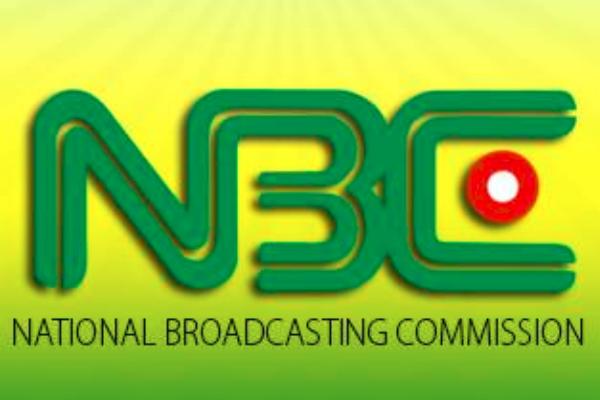NBC action will lead to job losses, editors say, kick against license cancellations
...as MRA Condemns NBC’s Revocation of Licenses of 52 Broadcast Stations
The Nigerian Guild of Editors (NGE) has expressed concern over the shutting down of over 50 broadcast stations by the National Broadcasting Commission (NBC) for failing to pay their renewal licence fees.
In a press statement signed by its President, Mustapha Isah and the General Secretary, Iyobosa Uwugiaren, on Friday, the professional body of all the editors in Nigeria said that the action, if not reversed, will lead to the loss of thousands of jobs in a country where jobs are scarce.
READ ALSO: NBC bars broadcast stations from reporting terrorist attacks
“The NGE is worried because media houses, which played and continue to pay a key role in the nurturing and development of democracy can’t just be off air no matter the reasons.
“While the Guild is not against broadcast stations fulfilling their financial obligations to the NBC, we note that the current harsh operating environment that has crippled every sector in our nation was not taken into account by NBC before its action.
“Currently, it is difficult for private stations to import broadcast equipment due to the high exchange rate. We are all aware of the high operational cost, including the cost of diesel to power their generating sets”, the NGE stated.
The Guild added that several broadcast stations are just managing to survive in the midst of the high competition in the industry following the licencing of hundreds of more stations by NBC.
The NGE called for a review of the NBC Act to increase the lifespan of a broadcast licence from five to at least 10 years.
The body of editors also advocated a reduction of the licence fees considering the fact that several broadcast stations now operate in the country, saying, for instance, the Lagos zone alone now has close to 50 radio stations.
The NGE tasked the NBC to enter into dialogue with the affected stations to restructure the debts owed and work out a convenient payment period to ensure their survival.
According to the statement, “A caring government should be concerned about the possibility of job losses than revenue generation. After all, one of the functions of NBC is working for the survival and the development of the broadcast industry.”
“A critical stakeholder in the nation’s democratic space cannot be shut out at this critical moment of our democracy, especially when the country is preparing for the 2023 general election.”
The NGE, therefore, urged the Broadcasting Organisations of Nigeria and the Independent Broadcasting Association of Nigeria to enter into a dialogue with NBC with a view to finding a lasting solution to this recurring issue of licence renewal fees, which often lead to threats of the shutdown.
Meanwhile, Media Rights Agenda (MRA) has condemned today’s revocation and withdrawal of the broadcast licenses of 52 broadcast stations across Nigeria by the National Broadcasting Commission (NBC) describing the action as ill-advised, insensitive and antithetical to the interests of the Nigerian public.
In a statement by Ms Obioma Okonkwo, Head of its Legal Department, MRA said by the revocation of the broadcast licenses of so many stations for alleged non-payment of their licence fees, NBC was prioritizing its desire to make money off the broadcasters over the interest of citizens as the ultimate effect of its action is to deprive millions of Nigerians access to information as well as their rights and ability to freely express themselves through these stations.
Ms Okonkwo said: “We are shocked by this naked display by the NBC of a lack of appreciation of its principal role which is to contribute to the emergence of a knowledge society. Rather, it has chosen to create an environment in which millions of Nigerians will wallow in ignorance, deprived of access to crucial information that they need to make critical decisions in their lives or to enhance their livelihoods.”
She argued that “the action of the NBC has only worsened the prevailing lopsidedness in the broadcasting landscape in Nigeria which was already dominated by government-owned broadcasting stations but is now under the monopolistic control of Federal Government-owned stations, which will be almost unchallenged, with the result that citizens will now be fed unmitigated propaganda by these remaining stations.”
Ms Obioma accused NBC of being insensitive to the harsh economic environment under which the broadcast stations have operated over the last two and a half years as the national economy has been ravaged by the COVID-19 pandemic itself and the measures taken by the government in response to the pandemic.
She noted that the broadcasting stations are also negatively impacted by the inability of the government to create a conducive environment for them to operate, such as providing appropriate infrastructure like electricity supply, adding that with the stations having to find alternative sources of power supply even as the price of diesel continues to skyrocket daily, they are simply struggling to survive.
Ms Obioma said: “The fact that so many broadcasting stations have been unable to pay the license fees raises serious questions about the fairness and appropriateness of the fees being imposed on broadcasters by the NBC in such a challenging economic environment. As the NBC, which imposes the fees and collects them for its own use, there needs to be an independent inquiry into this apparent conflict of interest where the motivation of the commission is apparently to make as much money for itself as possible.”
Ms Obioma called on NBC to reverse its decision in the public interest to avoid creating a society of predominantly ignorant citizens, advising that the need to ensure that Nigerians are adequately informed through the media should supersede any other consideration by the NBC.
She advised the commission to liaise with the broadcasting stations to identify the challenges facing the industry and come up with realistic solutions to the identified challenges.


